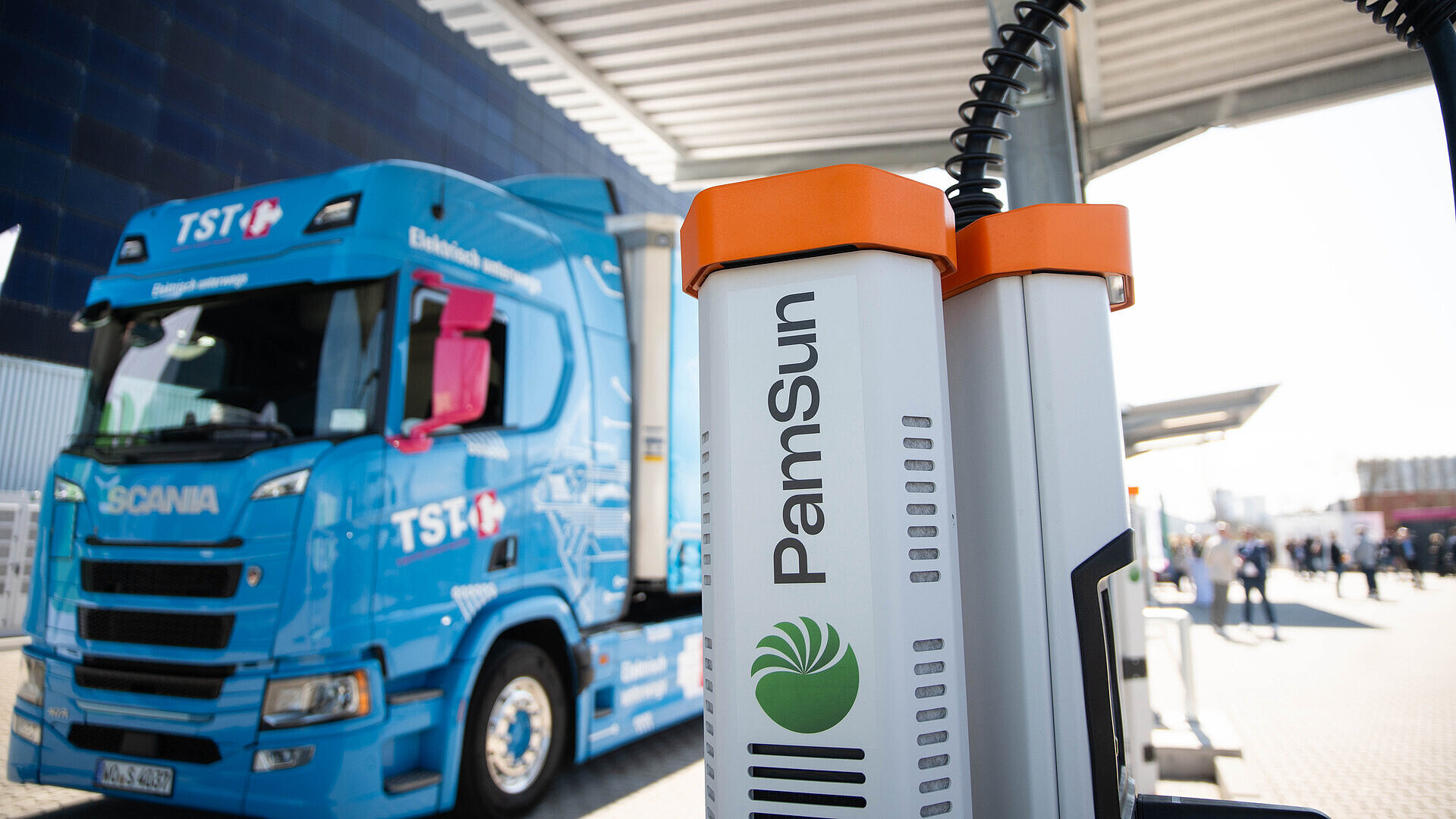
TST launches e-truck depot charging grid

‘The economic viability of charging infrastructure depends significantly on its utilization,’ says Frank Schmidt, founder and CEO of the logistics service provider TST from Worms. Therefore, his goal is to make the facilities a profitable investment through shared use. Through a cooperative alliance of medium-sized enterprises, the TST CEO intends to create the conditions for affordable electricity and thus the economic operation of battery-electric trucks.
‘We help our partners establish truck-compatible facilities using proven systems and define common standards. And when we purchase in larger volumes together, everyone benefits from better terms,’ Schmidt explains the concept. However, financing is handled individually by each participating company: ‘The assets remain with the partner and are not transferred to the alliance.’
By 2028 at the latest, a nationwide network is expected to be established that will provide battery-electric trucks with energy for tours throughout Germany. The TST CEO also plans to purchase electricity jointly, as self-production is inadequate for running larger truck fleets or for the profitable use of depot charging locations. For this, a large electricity storage system is necessary to enable around-the-clock operation.
Low-priced green electricity
‘In addition, we can store green electricity from the grid during times of particularly low prices,’ he emphasizes. According to the Federal Network Agency, the average day-ahead price on the spot market, traded a day before delivery, the average price per kilowatt-hour in 2024 was around 7.85 cents. When wind farms occasionally produce excess electricity, it can even lead to short-term negative electricity prices.
Naturally, the entrepreneur is also looking at procurement advantages in vehicle acquisition, as E-trucks currently cost at least twice as much as comparable diesel models. In this regard, he can take inspiration from the logistics cooperative Elvis, which achieves better terms through joint purchasing negotiations.
Any company that uses electric trucks can become a member of the association. A fixed annual fee per vehicle is charged. Those who also contribute their charging infrastructure receive a discount on the membership fee and will soon benefit from predictable utilization.
The core of the model is intended to be the software through which drivers can reserve charging points. ‘As with fuel card systems, we will also centralize and standardize billing,’ the entrepreneur emphasizes, highlighting the efficient approach. (loe)



